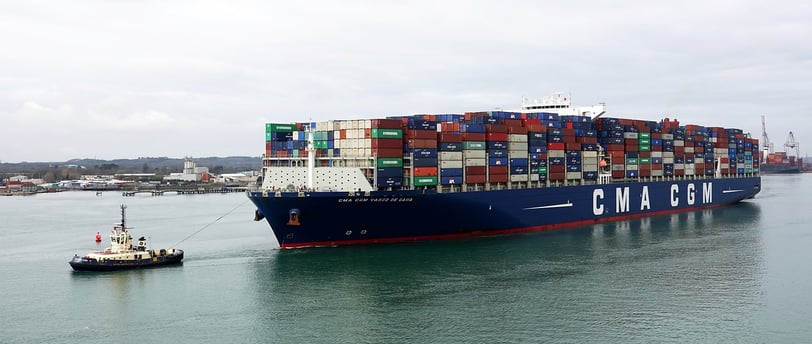Windway Logistics | Logistics and Transportation Solutions
How to Manage Shipping Delays and Minimize Impact
Learn strategies for handling shipping delays and minimizing their impact on your logistics operations.
9/19/20242 min read


Introduction
In the dynamic realm of logistics, handling delays in shipping is a crucial obstacle that can influence customer happiness and the overall success of a business. Shipping delays can stem from a range of issues, such as:
- Weather Incidents: Harsh weather can stop transportation and cause delays in deliveries.
- Supply Chain Problems: Issues within the supply chain, like delays in production and shortages of materials, can disrupt shipping timelines.
- Changes in Regulations: New rules or customs demands can cause unforeseen delays.
- Seasonal Peaks in Demand: High demand during certain seasons can surpass the capacity of logistics, resulting in delays.
Recognizing the underlying reasons for shipping delays is the initial step in effectively addressing them.
1. Set Up Backup Shipping Plans
Creating backup shipping plans is key to lessening the impact of hold-ups. Here are some important parts to include in your backup plans:
- Multiple Carrier Partners: Form connections with several carriers to make sure you have backup options if your main supplier faces any issues.
- Adaptable Routes: Develop routes that can be adjusted on the fly to accommodate changes like traffic or weather.
- Extra Time Allocated: Add extra time to your shipping schedules to make room for possible hold-ups, ensuring your customers get their orders on time.
2. Improve Your Communication Channels
Clear and forward-thinking communication is essential when dealing with shipping hold-ups. Think about these strategies:
- Instant Updates: Use tracking systems that give customers up-to-the-minute information on their deliveries. This openness can help manage expectations and lessen frustration.
- Prompt Customer Notifications: If there's a delay, quickly inform the affected customers about the situation and give them new delivery estimates. Being open can build trust and understanding.
3. Review and Enhance Your Supply Chain Operations
Regularly checking and improving your supply chain operations can help reduce disruptions in logistics. Consider these methods:
- Data Analysis: Use data analysis to spot trends in delays and understand what's causing the shipping problems. This insight can guide better decision-making.
- Inventory Optimization: Keep your stock levels in check to ensure you have enough inventory to meet customer demand, even when there are unexpected delays.
4. Educate Your Team
A knowledgeable team is crucial for handling shipping delays effectively. Offer training on:
- Problem-Solving Skills: Equip your team with the ability to quickly spot and solve potential shipping issues.
- Customer Service Skills: Train your team to deal with customer questions and complaints about shipping delays with care and professionalism.
5. Strengthen Your Relationships with Suppliers and Partners
Having strong connections with suppliers, carriers, and other partners can boost your ability to manage delays. Consider the following:
- Ongoing Communication: Keep in touch with your partners to stay informed about possible disruptions and work together to find solutions.
- Joint Improvement Efforts: Collaborate with your partners to find ways to improve the shipping process and reduce the chances of delays happening again.
Conclusion
Handling shipping delays is key to keeping your customers happy and ensuring your logistics operations run smoothly. By setting up solid backup plans, improving your communication, and optimizing your supply chain, you can lessen the impact of delays and boost your overall efficiency.
Call to Action
Looking to take charge of your shipping operations? Reach out to us today to find out how our logistics solutions can help you manage shipping delays and improve your operational efficiency!
Your One-Stop Shop for Logistics Solutions.
Contact
Follow
Support@windwaycentralogistics.com
+2347069986074
© 2024. All rights reserved.
+2347042141892
+233540806857
* Badagry expressway, Alafia Bus stop, behind Oando filling station( Bencord Warehouse),Lagos, Nigeria.
* Atiku Abubakar Hall, Balogun Trade Fair market, Lagos, Nigeria
* Abossey-Okai Mortuary Road, Opposite the Central Mosque, Ghana.


